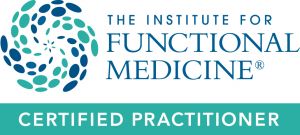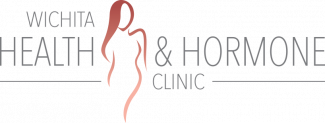
PCOS
Have you been dealing with erratic periods… sometimes missing periods altogether, or experiencing prolonged periods?
Maybe you have noticed mood changes, pelvic pain or unexplained weight gain?
Or maybe you’ve experienced acne, hair loss, or unusual hair growth on your face, chest, or back?
Well, you’re not alone… in fact, approximately 5 million women of child-bearing age suffer from PCOS (polycystic ovarian syndrome) and are either not getting the correct treatment or haven’t been diagnosed…
PCOS stands for Polycystic Ovarian Syndrome – a condition characterized by hormonal imbalance and metabolism problems that affect women’s overall health and appearance… and is a common and treatable cause of infertility.
The hormonal imbalances seen in PCOS alter the menstrual cycle, so the egg may not develop as it should or it may not be released during ovulation as it should be – giving rise to the condition’s name.
This is one of the many reasons why there is still confusion around this condition. In fact, the “cysts” aren’t your standard cysts that need removal. They are actually small follicles (a normal part of the ovulating ovary), each containing an egg. The buildup in the ovary due to eggs not being released over time impacts the ovaries’ ability to produce important female hormones that assist with cycle regulation.
Here are some common symptoms of PCOS:
- Difficulty getting pregnant (infertility)
- Irregular menstrual cycle
- Hirsutism (hair growth on the face, chin, or parts of the body where men usually have hair)
- Acne on the face, chest, and upper back
- Thinning hair or hair loss on the scalp; male-pattern baldness
- Weight gain or difficulty losing weight
- Darkening of skin, particularly along neck creases, in the groin, and underneath breasts, which is commonly associated with insulin resistance
- Anxiety and/or depression
- Elevated waist-to-hip ratios, overweight and obesity
- Fatigue
When patients receive a medical diagnosis of PCOS, this can create even more fear and confusion… because they are led to believe that it can’t be healed, and that you can only treat it with medications.
The Conventional Approach
When birth control pills are the first line therapy to alleviate a woman’s symptoms of PCOS, she is not addressing the root cause. Instead the symptoms are masked with the pills. What’s less commonly known is the birth control pills themselves pose several health risks.
Birth control pills contain synthetic hormones, such as ethinyl estradiol and norethindrone, which are not recognized or broken down by the body in the same way as natural hormones. Birth control pills disrupt your natural hormone levels by keeping estrogen levels high which can lead to a myriad of health concerns. Some of these risks include cancer (breast, uterine, cervical), yeast overgrowth (GI tract), cardiovascular (blood clots, stroke, heart attack), liver toxicity (worse with certain vitamin deficiencies), increased sex-hormone-binding-globulin (decreases testosterone and thyroid hormone).

The Functional Medicine Approach
Many women suffer from PCOS, 1 in 10 in fact, and sadly, over half of those go undiagnosed. PCOS is also a leading cause of difficulty achieving pregnancy.
Some of these women have been diagnosed with PCOS and are led to believe symptom management is the treatment. As a result, they are placed on medications that do not correct the root cause of this imbalance.
The Functional Medicine approach is to understand the root cause of any imbalance as well as how other systems in your body may be impacted.
We begin with functional testing that gives a clearer picture of where you may need the most support in the areas such as insulin, gut and hormone imbalances. These are often a part of PCOS. This testing is important because it helps discover why the imbalances are occurring beyond symptoms.
In functional medicine, we treat the body as a whole. We approach PCOS from a holistic viewpoint and first see if the imbalance can be adjusted through natural means, so other systems won’t be offset. This also allows your body to re-establish function so your hormonal health can rebalance naturally. Only after, we will explore if hormone replacement is necessary, along with any lifestyle changes needed.
At Wichita Health and Hormone Clinic, the focus is on identifying the root cause of your PCOS so we can personalize a plan that addresses the imbalances.
Take The First Step On Your
Journey With Me
Perhaps you have questions you’d like to ask before you make a decision to become a patient. We are happy to answer any questions you have to determine if Wichita Health and Hormone Clinic is right for you.
Contact Us
Wichita Health and Hormone Clinic
7570 W 21st St N
Bldg #1026, Suite C113
Phone: 316-201-6774
sclawson@wichitahhc.com


